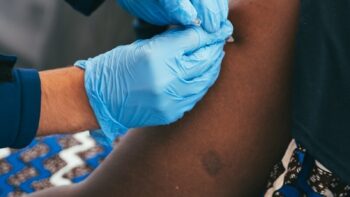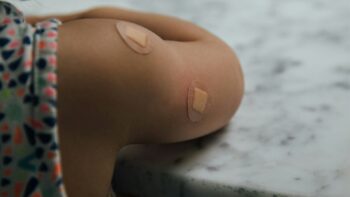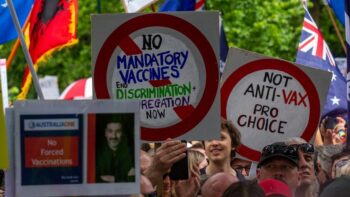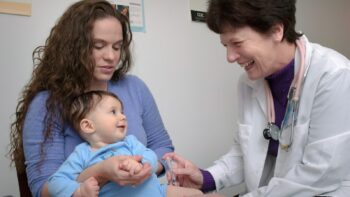CIDRAP releases interim update on its Vaccine Integrity Project, spotlighting global threats to vaccine confidence and outlining next steps to support equitable immunization efforts worldwide.


CIDRAP releases interim update on its Vaccine Integrity Project, spotlighting global threats to vaccine confidence and outlining next steps to support equitable immunization efforts worldwide.

The first thing to do if someone expresses uncertainty about vaccines to you, say researchers, is not to judge or dismiss them. A lot of people have genuine and legitimate questions and “you’re going to lose them if you immediately jump back and say ‘that’s silly’ or ‘that’s not the fact’”, Larson says.

A new 70-country survey by The Global Listening Project, the VCP’s sister initiative, reveals that while people are demanding better healthcare and more information, trust in vaccines and institutions has declined in 9 out of 10 countries. Professor Heidi Larson speaks to Vaccines Today about the legacy of the COVID-19 pandemic on vaccine uptake.

“A lot of people had no clue how toxic the [vaccine misinformation] environment was,” says Heidi Larson, who studies vaccine hesitancy at the London School of Hygiene & Tropical Medicine. “People who were taking vaccines for granted got exposed [to misinformation], and now there’s no turning back.”

Evidence shows that science and scientists remain highly trusted. But genuine scientific voices are not shouting loud enough over the noise to hold sway.

In the oil towns of west Texas, a measles outbreak is spreading. Gaines County, where the flare-up began, had the state’s third-highest share of children exempt from measles and other vaccines for religious or philosophical reasons last year

The way to discuss a vaccine, says Prof. Heidi Larson, founding director of the Vaccine Confidence Project, is to ask your patient how they feel about it and go from there, addressing patient concerns and developing a risk-benefit analysis to discuss.

This series of studies highlights the importance of adopting constructive approaches to restoring public health confidence in vaccination, particularly mRNA vaccines.

Professor Heidi Larson spoke to The i Paper about the role of the Covid pandemic in driving vaccine confidence declines among 18 to 24-year-olds: “It was not specifically a reaction to the vaccine. They felt that their education was disrupted, social life restricted and jobs lost or disrupted.”

In 2023 around 70% of UK adults said that vaccinations were safe and effective, down sharply from 90% in 2018, according to research from the Vaccine Confidence Project, run by the London School of Hygiene and Tropical Medicine (LSHTM).

The Covid pandemic has provoked a fresh wave of hesitancy. According to VCP data, between 2018 and 2023 confidence in vaccine safety, importance and efficacy fell by about 20% in the UK.

Heidi Larson, director of the Vaccine Confidence Project, discusses why there is more of a political divide on Covid vaccine acceptance than flu.